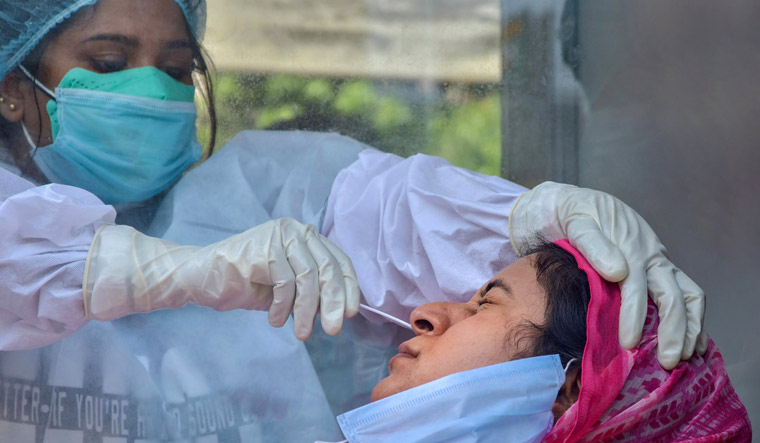Doctors should avoid using hydroxychloroquine for severe COVID-19 patients, the Union health ministry has said in the updated protocol for clinical management for the disease. The controversial drug has been part of India's treatment and disease prevention protocol, despite insufficient evidence to prove its efficacy.
Though a Lancet study that showed no benefit in treatment with HCQ itself has been retracted because of data issues, the large UK-government funded randomised clinical trial called 'Recovery' has also not been able to demonstrate any benefits from HCQ in COVID-19. The WHO is currently conducting a randomised controlled trial on four drugs including remdesivir, HCQ, lopinavir and ritonavir, and interferon beta-1a.
"This drug [HCQ] has demonstrated in-vitro activity against SARS-CoV2 and was shown to be clinically beneficial in several small single center studies though with significant limitations. Nonetheless, several large observational studies with severe methodological limitations have shown no effect on mortality or other clinically meaningful outcomes," the revised protocol released on Saturday says.
"As such, the evidence base behind its use remains limited as with other drugs and should only be used after shared decision making with the patients while awaiting the results of ongoing studies. As is the case with other antivirals, this drug should be used as early in the disease course as possible to achieve any meaningful effects and should be avoided in patients with severe disease," the protocol reads.
It also advises that an ECG should be done ideally before prescribing the drug. The recommended dose is 400 mg twice on day 1, followed by 400 mg daily for next 4 days.
The latest protocol has also expanded the clinical features for COVID-19 to include 'loss of smell and taste'. The new list includes fever, cough, fatigue, shortness of breath, expectoration, myalgia (muscle ache), rhinorrhea, sore throat, diarhea as symptoms of infection.
“Loss of smell (anosmia) or loss of taste (ageusia) preceding the onset of respiratory symptoms have also been reported,” it reads.
Among other investigational therapies, the protocol defines the use of Remdesivir,(under Emergency Use Authorization) stating that it may be considered in patients with moderate disease (those on oxygen), unless they fall in some categories such as pregnant women and children, or those with severe renal impairment, among others.
On Tocilizumab (immunosuppressive drug used in the treatment of rheumatoid arthritis and arthritis in children), the protocol states that the "off label" use may be considered in patients with moderate disease with progressively increasing oxygen requirements and in mechanically ventilated patients not improving despite use of steroids.
"Long term safety data in COVID-19 remains largely unknown. Special considerations before its use include the presence of raised inflammatory markers, patients should be carefully monitored post Tocilizumab for secondary infections and neutropenia. “Active infections and Tuberculosis should be ruled out before use," the protocol states. Use of these drugs is subjected to "limited availability" in the country.
Convalescent plasma (off label use) may be considered in patients with moderate disease who are not improving (oxygen requirement is progressively increasing) despite use of steroids, it further says.



